The story so far: in 1986 English National Opera hired Jonathan Miller to direct Gilbert and Sullivan’s The Mikado. The result was so fresh and funny that it’s been a mainstay of the ENO schedule for more than three decades, to the indignation of hardcore opera fans who can’t understand why audiences keep flocking to hummable melodies and humour instead of, say, Berg’s Lulu. Attempting to repeat the formula, ENO then made the rookie error of engaging Ken Russell who, being Ken Russell, promptly updated Princess Ida to the 21st century and set it in a futuristic sushi bar. Finally, in 2015 they entrusted The Pirates of Penzance to Mike Leigh, whose G&S biopic Topsy-Turvy seemed to guarantee a safe pair of hands. Good call. The first run of Leigh’s brightly coloured but basically traditional production was extended due to popular demand.
So there’s a fair amount riding on this first revival, overseen by director Sarah Tipple. Is Leigh’s Pirates going to be an infinitely repeatable bestseller on a Mikado scale? It certainly looked pretty full, and the matinee audience was the most youthful I’ve seen at a London house (some of the youngest had come dressed as pirates). And they laughed, too, which is never a bad sign. Leigh’s approach to G&S isn’t as radical as Miller’s, and the costumes wouldn’t have looked out of place when The Pirates was first staged in 1879. Alison Chitty’s sets, on the other hand, are as remote from the D’Oyly Carte tradition as it’s possible to imagine — huge, abstract, geometrical flats in eye-watering primary colours. They throw the emphasis on to the individual performances, and occasionally, drolly, close in to frame a scene like an enormous pair of inverted commas.
But they do leave a lot of blank space — a high-risk strategy when you’re trying to whip up some comic momentum. The choral choreography is a bit too baggy to fill the gaps, and you’ve got to wonder how the whole thing will look in a decade or so. Spirited performances are vital, and happily there were some corkers here: Soraya Mafi’s deliciously bright and minxy Mabel, Lucy Schaufer’s tomboyish Ruth and — reprising his role from the initial run — Andrew Shore as a twinkly Major-General Stanley, delivering his Act One patter-song as an actual song rather than a recitation, which was refreshing.
Ashley Riches’s sunny, strapping Pirate King, meanwhile, certainly lived up to the picture of Johnny Depp that ENO (rather unfairly) included in its programme book. There was an enjoyably brazen swagger to his singing that compensated for a Frederic (David Webb) who couldn’t always make himself heard over the orchestra — which played elegantly under Gareth Jones, although in a barn like the Coliseum it might need a bit more rhythmic snap if the piece is to sparkle rather than merely glow. Whether this Pirates will run and run is still open to question, but it’s certainly worth seeing right now, not least because until mid-March John Tomlinson is playing the Police Sergeant. If you’re not tempted by the prospect of seeing our greatest living Wotan brandishing a truncheon and belting low Fs at a man in a frock and a pirate hat, there’s probably no hope for you.
The Royal Opera has different priorities. David McVicar’s lavish period production of Cilea’s Adriana Lecouvreur was created in 2010 as a showcase for Angela Gheorghiu, and appears destined to remain one. That does a disservice to a lovely opera — which is rather more subtly characterised than some of the verismo shockers with which it’s usually classed — and some compelling performances, particularly Gerald Finley’s radiantly sung and touchingly careworn portrayal of the actress Adriana’s besotted father-figure Michonnet. Add Ksenia Dudnikova — magnificently icy as the heroine’s aristocratic rival — and the tenor Brian Jagde pumping out weapons-grade high notes as their love interest Maurizio, and this was more of an ensemble drama than a star vehicle. Charles Edwards’s sets looked gorgeous, too: in particular his lovingly detailed, almost full-scale recreation of an 18th-century theatre.
Daniel Oren conducted. He’s marginally less popular than Donald Trump among London’s opera-going chatterati, for reasons which — on the strength of this lyrical if slightly lumpy reading — I was largely unable to discern. And, of course, there in the title role was Gheorghiu herself, exuding a dark, flashing brilliance and floating her quiet phrases with an intensity and a sweetness that — at least while they hung there — made nothing else on stage matter. Her acting involved a mixture of smouldering glances, languishing postures and florid hand-waving, noticeably at odds with the naturalism of the rest of the cast. Maybe that was because she was portraying a character who is fatally incapable of distinguishing theatre from reality. But I wouldn’t put money on it.
Got something to add? Join the discussion and comment below.
Get 10 issues for just $10
Subscribe to The Spectator Australia today for the next 10 magazine issues, plus full online access, for just $10.

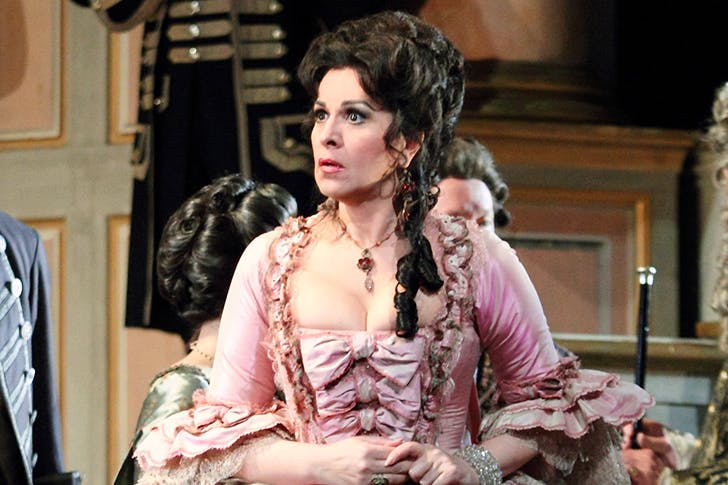
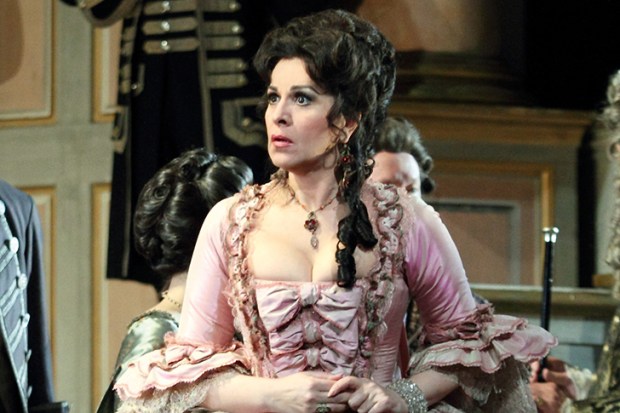
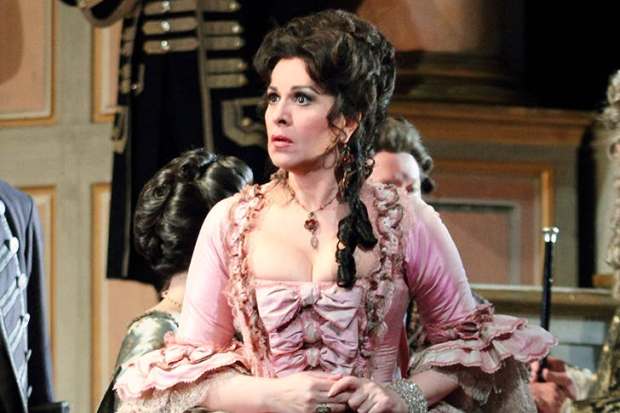
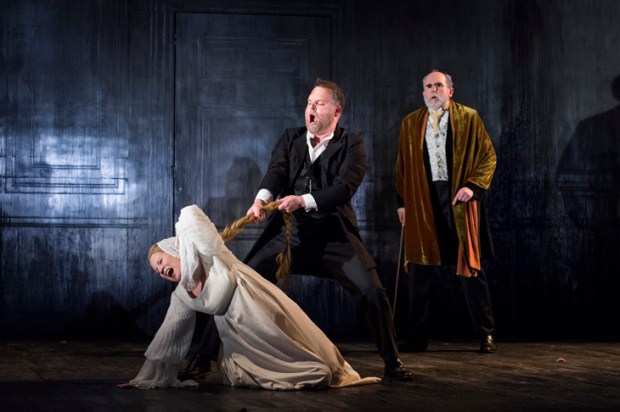
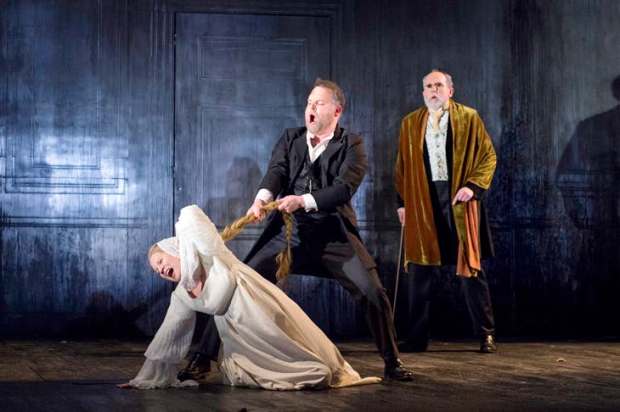
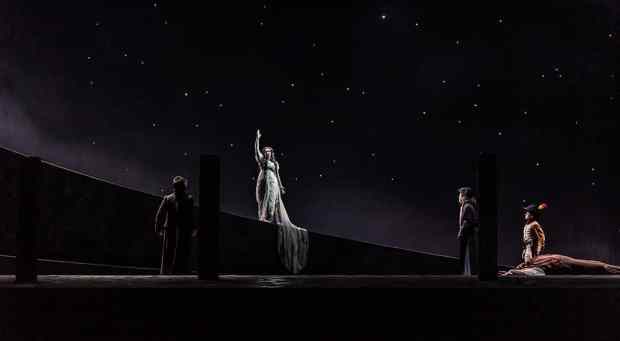






Comments
Don't miss out
Join the conversation with other Spectator Australia readers. Subscribe to leave a comment.
SUBSCRIBEAlready a subscriber? Log in